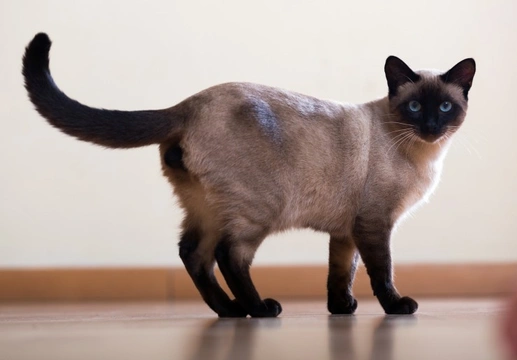
Siamese Cats and Vestibular Disease
The lovely Siamese cat is among the oldest breeds in the world and they have found their way into many a person's heart and home which is hardly surprising because they have great personalities to match their good looks. However, like so many other pure breeds, the Siamese is known to be predisposed to certain health issues, some of which are hereditary whereas others are acquired.
If you are hoping to share your home with one of these talkative felines and are thinking about getting a Siamese kitten, it's really important to contact reputable breeders who always screens their cats before using them in a breeding programme. Although many genetic disorders are capable of jumping a few generations, the better bred a Siamese kitten happens to be, the less they are at risk of inheriting a congenital or hereditary health disorder from their parents.
One health issue that seems to affect the breed is Vestibular Disease or idiopathic vestibular disease as it is often referred to. It's a hereditary and congenital disorder passed on to offspring by their parent cats. The condition impacts the nerves found in a cat's ears and the result is they lose their balance experiencing episodes of dizziness and disorientation. Very often cats when they develop the disorder cats tilt their heads to one side and may even frequently fall over.
The weird thing about the disorder is that a cat would suddenly display the symptoms mentioned above, but then the disorder vanishes as quickly as it first appeared. In the meantime, however, a vet would be able to prescribe a treatment that would help a cat get over any nausea they may be feeling as a result of dizziness which can be likened to motion sickness.
The Vestibular System Explained
A cat's vestibular system is made of a few very important things which includes a receptor, a stem lower in the brain and a nerve. It's job is to help cats maintain their balance and to let their bodies know where they stand in relation to the horizon. It is one of the neurology condition that is pretty commonly seen in cats, but at the same time more often than not vets find it a challenging disorder to diagnose and treat. When a cat's vestibular system is comprised, their movements are seriously impacted because they cannot focus on objects as they walk and move around.
What Causes Vestibular Disease?
The main cause of the condition is typically due an infection or problem with one of a cat's ears. All too often older cats are affected due to their vestibular systems being comprised in one of the three canals that make up their inner ear. These canals have specific jobs which are to sense things around the cat, to help maintain their balance and regain their balance when necessary. They work much like a spirit level"" which allows a cat to know exactly where their bodies are in relation to the space around them.
Signs to Watch Out For
The signs to watch out for that your Siamese cat might be developing vestibular disease include the following:
- They may develop a head tilt and look as if they are having trouble keeping their balance
- Cats often appear to be disorientated when they have vestibular disease
- Very often their eyes move jerkily in their sockets which is a condition known as ""nystagmus""
If the condition is very severe, a cat might not even want or be able to stand up preferring to hide away somewhere they feel safe which can be worrying for owners if they cannot find their pets and when they do, they find their cat unable to walk or keep their balance when they stand up.
Probable Causes
Vets think the condition could be triggered by the following conditions:
- Polyps
- Cancer of the ear
- Infections of the ear
- Encephalitis
- A reaction to a drug
- A spinal problem
Diagnosing the Problem
Vets often find it quite challenging to diagnose the problem or to find out what has triggered an episode because there could be several reasons why a cat suddenly develops the condition. One thing vets have noticed is that cats tend to suffer from the disorder at specific times of the year which is late in the summer and then again in early autumn. There is some belief the condition may be related to certain respiratory infections that Siamese and other cats tend to suffer from too, but this is yet to be established.
How The Condition Affects a Cat
Although a cat might be experience vestibular disease, it would not affect their hearing in any way. It will however, make them feel quite sick and as a result they tend to throw up which is why a vet would need to prescribe some sort of anti-nausea medication that would help keep them feel more comfortable.
If the condition is very severe, a vet might recommend keeping a Siamese cat hospitalised so their condition can be carefully monitored and the necessary care given. This could involve sedating the cat and giving them the necessary anti-nausea medication. In some instances, a cat would need to be put on fluids until they are back to themselves and therefore able to eat and drink on their own. Once a cat is allowed home, it's important for them to stay somewhere safe away from stairs or any other dangers so they don't injure themselves as they stumble around.
It can take some cats anything up to 3 days to completely regain their balance, but it can be weeks before they are really back to their old selves. If you think your cat is not showing any improvement, you should get them back to the vet so they can be thoroughly examined again to make sure there's no other underlying health issue that could be causing their slower recovery time.
""



